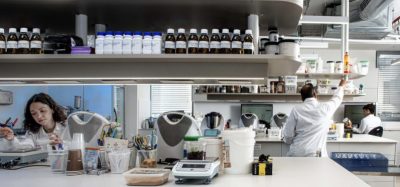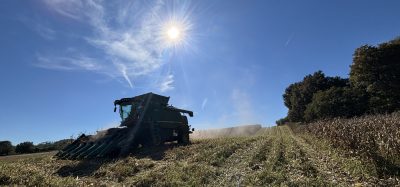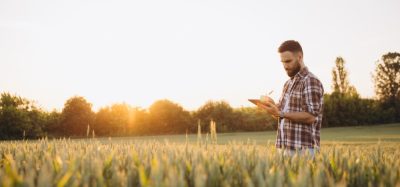Rebels of a different kind: the sustainable baking movement behind Step and Stone
Posted: 9 June 2025 | Ruth Davison | No comments yet
Ruth Davison from Our Carbon speaks with the Co-founder and CEO of the ethical platform Different Kind, Liz Warner, about why they are the ‘rebels of retail’.
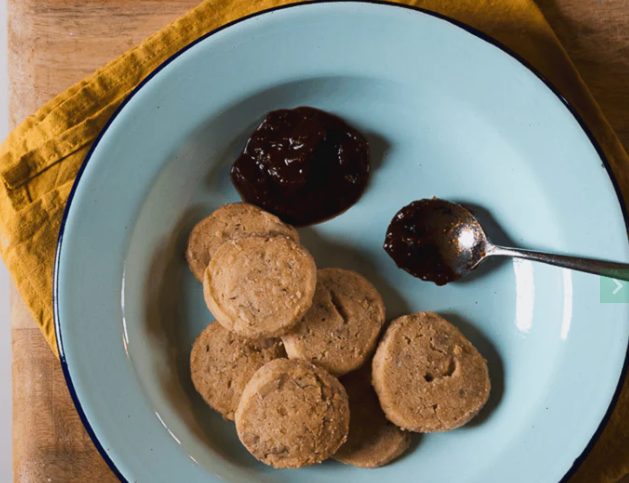

“We’re challenging the norms of shopping,” explains Liz, “building a new relationship between makers and customers.”
Liz talks me through what this means in practice as we share some walnut and cheese savoury biscuits.
Commissioned by Different Kind and produced by Bristol bakery, Step and Stone, these biscuits have won several prestigious taste awards in the UK. Like many of Different Kind’s partners, Step and Stone focuses on high-quality, locally sourced ingredients. The biscuits include Old Winchester cheese from Somerset and British walnuts grown in orchards in Gloucestershire, as well as organic, unrefined Shipton Mill flour. They are, unsurprisingly, delicious.
“Combining high quality, local ingredients means we can ensure excellence in terms of flavour and taste, without compromising on sustainability,” explains Liz, “reducing our food miles and celebrating British farmers, while also delivering delicious products.”
Training that empowers, not exploits
But blending quality and sustainability is only part of the story. Different Kind was founded with a clear mission to create a different and kinder way of doing retail by curating products from highly ethical and socially minded producers. These include businesses that employ refugees, hire ex-offenders or – as is the case with Step and Stone – train young people with learning differences for fulfilling jobs.
Combining high quality, local ingredients means we can ensure excellence in terms of flavour and taste, without compromising on sustainability,” explains Liz, “reducing our food miles and celebrating British farmers, while also delivering delicious products.
Before meeting Different Kind, the bakery, which was started by Jane Chong and Jane Kippax, specialised in hand-making Middle Eastern-style flatbreads. The two Janes met through their children, Lottie and Andrew, both of whom have Down syndrome. The women shared that they “see their ability not their disability” and wanted to create opportunities for others with learning differences.
Young people who train with Step and Stone gain practical skills like timekeeping and teamwork, as well as learning the stages of baking. The end goal is to help them find paid work in other companies in the surrounding areas of Bristol and Bath. As a community interest company, any profits are reinvested into the business. In addition to the training they offer their employees, Step and Stone also runs a programme to help other employers hire from their talent pool, providing a personalised job match, followed by training and support for the hiring company.
“We have worked with Step and Stone for several years now,” says Liz, “and we knew we could sell more of their products, particularly around Christmas, but we didn’t want to put stress on this small company or their workforce.”
Creating a supportive training environment that enables young people to gain confidence and skills to thrive in future careers, means that Step and Stone do not work like many companies. Consequently, they don’t employ casual labour to cope with seasonal surges in demand because their impact metrics relate to how workforce-ready their young people are, not how much profit they can make. They also only develop products that can be baked in stages, ensuring that training can be kept simple and accessible without any compromise on flavour or quality.
Too often in mainstream retail, shoppers have to choose between quality and social impact
So Different Kind and Step and Stone worked together to create a range of savoury biscuits that could be produced in stages, with the dough made by hand outside of peak season, frozen and then defrosted and baked closer to Christmas. The result is an award-winning product that the young workers are proud to have created: a product that does good and tastes good.
“This is what Different Kind is all about,” Liz continues, “you can be confident with every purchase you make from us. We make every effort to understand our producer’s aims, the change they want to see in the world and how this translates into their products. We’ve done the homework.”
Step & Stone are just one of many producers Different Kind works with. In their online and newly opened shop in Market Square, Cirencester, you can find sustainably grown cobnut oil from Kent as an alternative to imported olive oil, coffee ground in prisons as part of offender rehabilitation, and jam made from foraged hedgerow fruits that would otherwise go to waste. As I have seen in other areas of sustainable sourcing, like in my piece on single-origin spices that do good and taste even better, transparency and direct relationships with producers can make a real difference to both people and the planet.
“Too often in mainstream retail, shoppers have to choose between quality and social impact,” says Liz. “With Different Kind you know that you are buying from producers who have made sustainability integral to everything they do, and whose products make a positive impact.”
Different Kind is fundamentally about helping ethical producers create greater impact by selling more and reaching a wider audience with their story. This means that Liz and her team are storytelling all day.
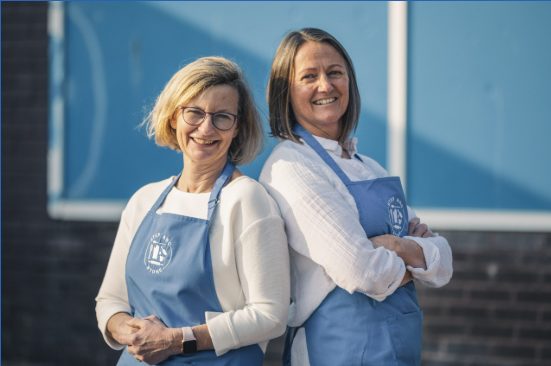

Jane Chong and Jane Kippax, co-founders of Step and Stone, met through their children, both of whom have Down syndrome, and bonded over a shared passion for creating opportunities for young people with learning differences Credit: Step and Stone
Stories that change lives
“We are in the business of narrative retail,” she explains. “We barely sell anything without telling a story. And in our polarised society, the role of storytelling has never been more important. Stories can cross divides and provide non-judgemental truth, delivering facts and letting people make up their own minds.”
This shared commitment to quality, sustainability and social impact gives Different Kind the ability to tell powerful stories that can change not just retail choices, but actual lives.
“The real story behind these cheese biscuits is that only 5 percent of people with a learning difference are in employment,” says Liz, “and by enjoying a delicious biscuit you are not just becoming aware of this challenge, you are already part of the solution.”
This claim is particularly powerful given that a high percentage of Different Kind’s business is in corporate gifting, reaching audiences of potential employers for Step and Stone’s trainees. And this is critical for Step and Stone as they seek to expand the number of employers who offer their trainees work placements, scaling their impact as they scale their production.
The real story behind these cheese biscuits is that only 5 percent of people with a learning difference are in employment
“We want more companies to consider gifting with purpose,” Liz says, “it just makes sense in these times. If more people eat these biscuits, more people might be given the chance of work. Not many biscuits can say that.”
Before founding Different Kind, Liz had a successful career in media, working for the BBC before founding and running her own independent production company and then becoming CEO of Comic Relief. Finding and telling stories is in her DNA.
As they grow, Different Kind aims to commission more products from its suppliers and will continue delivering the important narrative of these products’ creation. The company plans to film the entire development process of any new product and share it on its website and in stories with customers.
Finally, I asked Liz about Different Kind’s own sustainability. Unsurprisingly, Different Kind holds itself to the same rigorous evaluation that it uses to assess suppliers.
“No one is perfect,” says Liz, “and neither are we, but we work to continually increase our own sustainability. That includes making small changes like our ‘no issue tissue’ packaging which is fully recycled and recyclable, to bigger principles like moving all our core operations to Cirencester so we can more fully embed ourselves in the local community and reduce our carbon footprint.”
What is clear is that Different Kind sees itself as both the convener and an active member of a community of suppliers, partners and neighbours. By sharing practical advice, collaborating and working together they are successfully supporting each other’s sustainable business growth.
Like Step and Stone, Different Kind is pacing its growth to ensure it balances sustainable and responsible growth with the needs of producers. All profits will be directed back into its mission, supporting producer partners to expand and sell more. Or, as Liz puts it, “it means we are focused on creating a lot of chubby kittens, rather than becoming one fat cat.”
Meet the author


Ruth Davison, Chief Storyteller at Our Carbon, interviewed Liz Warner, CEO and Founder of Different Kind.
Our Carbon supports businesses in achieving product-level granularity in their carbon audits. The company helps businesses make decisions that are better for both the planet and their operations, while also sourcing stories that inspire.




